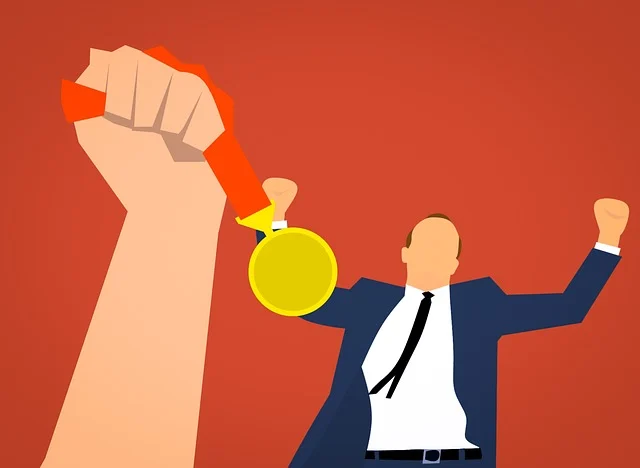It’s easy to distinguish employees who are highly motivated and engaged in their work from those who aren’t. Motivated employees look happier; they love what they do, go the extra mile, are more productive, and are more connected to the organization and its objectives. In organizations that have high-functioning employees like those, the background is often that their leaders have mastered the art of inspiring and motivating their teams. One way to do this is by running employee incentive programs.
An incentive program is a cluster of rewards designed to encourage people to accomplish set goals. The program works by leveraging human behavior. It links positive behavior that achieves the set goals to rewards and recognition. The more an employee completes the associated tasks, the more they are rewarded. Examples of incentive programs in workplaces include the following:
- Recognition and rewards
- Professional development opportunities
- Monetary incentives (like performance bonuses, project bonuses, and profit sharing)
- Referral bonus (for referring new employees or new clients)
- Tuition reimbursement
- Time off
- Fun gifts (e.g. event tickets, gift cards, loyalty reward cards, personalized stationery, etc.)
- Autonomy of choosing projects
- Health and wellness coverage (like a gym membership, medical cover, free health screenings, annual wellness fairs, free healthy lunches, etc.)
The Power Of Employee Incentive Programs
Employee incentive programs are worth implementing in a workplace because they have the following benefits:
Boosts The Morale Of Work
Recognition is the pathway through which employers offer feedback to their employees. Employees whose efforts and accomplishments are recognized tend to have greater morale to do better and often carry themselves positively. It makes them feel noticed and appreciated, improving their morale. Happy employees are more productive and tend to pass positivity and encouragement to other team members. Therefore, incentives and rewards become a tool for boosting the morale of the entire staff.
Improves The Quality Of Output
Rewards and incentives can improve the quality of work an individual or team puts out. For example, if workplaces focus on rewarding quality rather than fast delivery, the focus turns to the actual process of doing the tasks and their outcomes. The employees get better at the particular tasks involved and the outcome of their efforts improves. They improve and expand their knowledge base and in the process, deliver quality products or services to the customers.
Enhances Customer Satisfaction

Happiness and satisfaction at the workplace are contagious. To have satisfied customers, employees must first be happy. Happy employees are often engaged and committed to their work. They show up with purpose and passion, are effective, and deliver exceptional customer experiences. The employees radiate positivity, offer knowledgeable services, and build good customer relationships. Customers are likely to keep returning to the business, and the business sees a boost.
With returning customers, it’s also a good idea to issue them loyalty reward cards as an incentive to keep them engaged and show them that the business values their patronage. Businesses use this strategy to secure their market against the competition.
Employees Feel Valued
Incentives make employees feel that their contribution to the company is critical and valued. It breeds in them a personal commitment to the company’s mission and core values. The employees become more engaged, loyal, and effective team members, an attitude that is crucial to establishing a compelling culture that lasts many years. The company then becomes a great place to work, and it continues to improve the products or services offered to its customers.
Encourages Self-Management
Self-management refers to an individual’s ability to hold himself accountable for completing and efficiently performing tasks. The desire to receive particular rewards or recognition can be the key to self-management because it makes employees desire to be more productive, with or without supervision.
Offering incentives also turns employees into self-starters and innovators because when given the autonomy to decide, the employees will find a way to reach the set goal most effectively and efficiently. Innovation and invention are critical to a business because they help it lower costs without compromising on the quality of its output, and this gives it a competitive edge in the market.
Recognizing employee accomplishments also comes with a sense of ownership for the work delivered. The employees are happy to stand by what they have done to showcase their ingenuity and skills. Since nobody wants to be associated with shoddy work, the employees strive to deliver their best consistently, which is good news for the customers and the business.
It’s Easier To Retain Talent
Most highly skilled and talented individuals receive many employment offers and are likely to only last for a short while on the job market if let go. So, if a company has such individuals, it must implement measures to retain them. Having a fair and routine incentive program is one of the ways to hold on to these individuals. They feel appreciated for their unique contribution to the company’s success and are less likely to shift camp.
Motivate Your Employees With Incentive Programs
In the current ultra-competitive environment, businesses with the winning edge have well-trained and best-skilled staff but also have worked out an outstanding motivation model. At the core of this model are employee incentive programs that ensure that employees are recognized for their efforts. With employee recognition and rewards comes the motivation and morale to pursue excellence to benefit the business and its customers.
Employee motivation is the tool companies use to carve out a market segment for themselves and remain afloat, even during tumultuous economic times.






